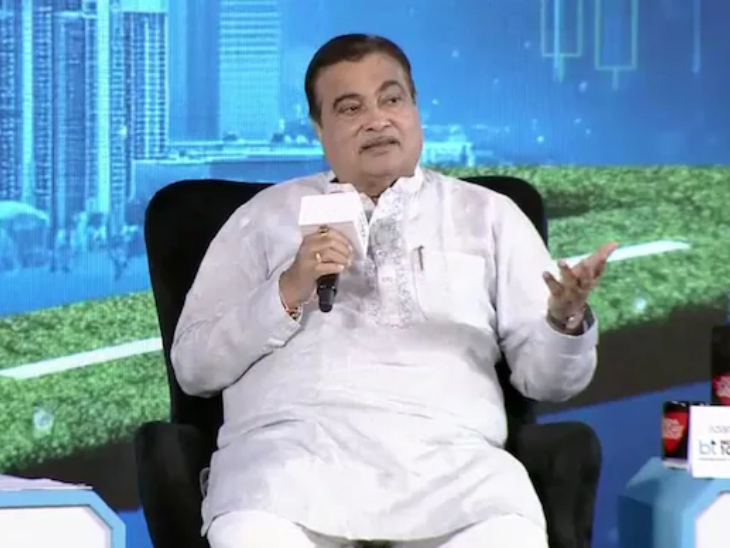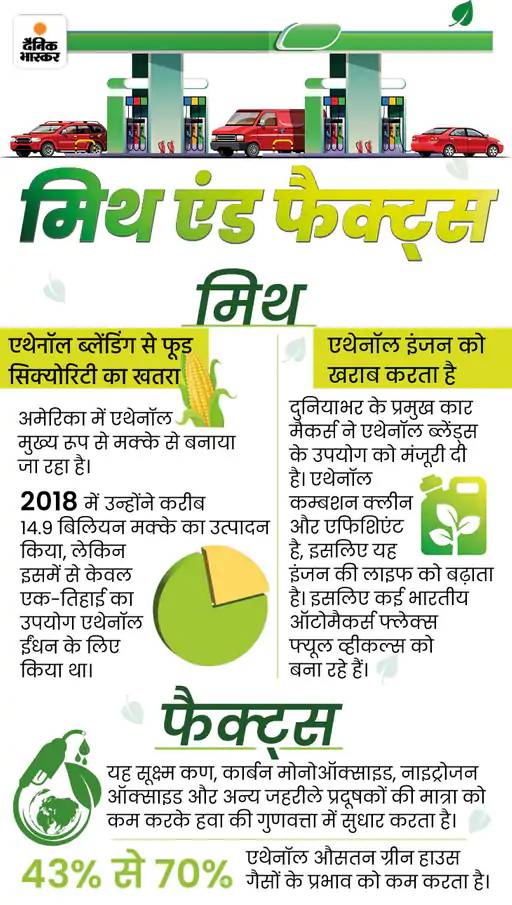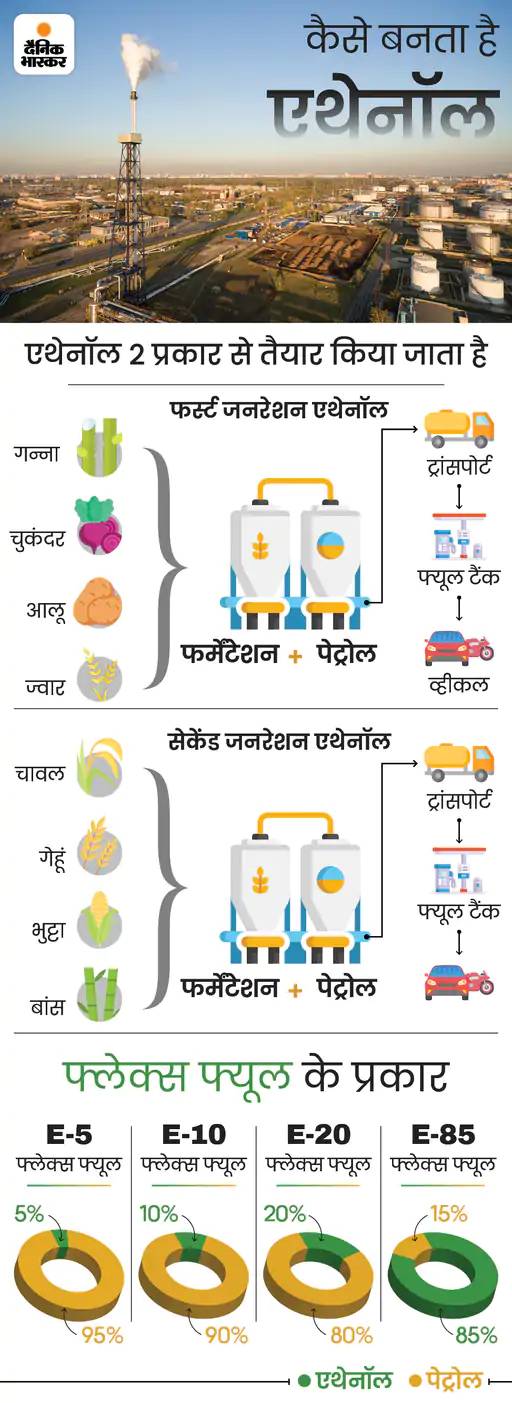New Delhi1 minute ago
- Copy link

Union Road Transport and Highways Minister Nitin Gadkari has accused the criticisms on E20 petrol of spreading wrong information. He said in an event held in Delhi today (August 8) that ‘If anyone feels that E20 petrol is having problems with trains, then he should present a single example.’ He claimed that so far no problem has been revealed from this fuel in any vehicle.
Recently some media reports were claimed by auto experts and vehicle owners that the E20 petrol has a 5-7% mileage in the real world, which is more than the government’s claims. On social media, people are questioning the government as to why the correct information and options are not being given for the old vehicles. But Gadkari termed it as ‘Political Conspiracy’ and said that efforts are being made to discredit this policy that started in 2001.

The ministry also said- E20 fuel does not harm vehicles
The Ministry of Petroleum and Natural Gas also issued a statement on the issue saying that the E20 fuel does not cause any harm to the vehicles. According to the ministry, in a long Test, 100,000 km of vehicles were run from E20 and checked every 10,000 kilometers. As a result, there was no significant difference in power, torque and mileage. However, it is believed that mileage in new vehicles may be 1-2% and old trains may be reduced by 3-6%, but it is not ‘drastic’ and it can be cured by engine tuning.
What about old trains?
There was a concern about the old trains that the E20 could spoil their engines and parts. But the ministry made it clear that the E20 has been inserted in the E20 and safety has been ensured under BIS and Automotive Industry Standards. If rubber parts or gaskets have to be changed after running 20000 – 30000 km in old trains, then it is part of routine maintenance and is also cheaper.
E20 fuel reduces pollution
Gadkari said that the E20 fuel not only reduces pollution, but the country has saved more than Rs 1.40 lakh crore in the import of crude oil. Also, farmers got more than Rs 1.20 lakh crore payment, which is a big relief for them. He said that ethanol’s octane number (108.5) is more than petrol (84.4), which is beneficial for modern engines and improves ride quality.
Ethanol policy will stabilize in 7-8 years
Gadkari expressed confidence that the ethanol policy would be stable in the coming 7-8 years, as after 80 years of practice in Brazil. The government aims to reach 30% ethanol blending (E30) by 2030, but it requires coordination with vehicle manufacturers and consumers.
What is ethanol?
Ethanol is a kind of alcohol, which is made from starch and sugar firm. It is mixed with petrol and used as eco-friendly fuel in trains. Ethanol is produced primarily from sugarcane juice, but ethanol can also be prepared from starch containing materials such as maize, rotten potatoes, cassava and rotten vegetables.
- 1g ethanol: First generation ethanol is made from sugarcane juice, sweet beet, rotten potatoes, sweet tides and maize.
- 2G ethanol: Second generation ethanol is made from cellulose and lignacellulous materials such as rice husk, wheat husk, corncob (corn), bamboo and woody biomass.
- 3g biofuel: Third generation biofuel will be made from Elgi. Right now work is going on.

E-20 sold in the country since April
Governments around the world are working on ethanol blended fuel to prevent air pollution from petrol and diesel vehicles and reduce fuel prices. In India too, ethanol is being seen as an alternative to petrol and diesel. This will also increase the mileage of vehicles.
Uses from 5% ethanol started in the country, which has now reached 20%. The government has started a process to move to E-20 (20% Ethanol + 80% Petrol) to E-80 (80% ethanol + 20% petrol) by implementing National Bio Fuel Policy in the month of April. Apart from this, only flex fuel complex vehicles are being sold in the country from April. Also, old vehicles can be changed in ethanol compliant vehicles,
What is the benefit of mixing ethanol?
Mixing ethanol in petrol will help reduce pollution caused by the use of petrol. Using this, the vehicles emit 35% less carbon monoxide. Sulfur dioxide and hydrocarbon emissions also reduce ethanol. This fuel also reduces the emission of nitrogen oxide due to 35% oxygen present in ethanol.
- What is the benefit of the common man: Ethanol adulterated petrol -run vehicles are much less hot than petrol. Alcohol fly quickly in ethanol, due to which the engine does not heat up soon. Apart from this, it will be much cheaper than crude oil. This is also expected to get relief from inflation.
- Benefits farmers: Increased use of ethanol will also increase farmers’ income. Because ethanol is made from sugarcane, maize and many other crops. Sugar mills will get a new source of earnings and earning will increase. Ethanol has benefited farmers Rs 21 thousand crore.

What is the benefit of ethanol fuel car?
- Less expensive: The biggest advantage of ethanol fuel is its price, which is currently around ₹ 60 per liter in the country. Nitin Gadkari has said that the car to be launched can give a mileage of 15 to 20 kmpl. With this, it is far more affordable than petrol, which is now sold at about ₹ 120 per liter.
- Eco-friendly: Mixing ethanol in petrol will help reduce pollution caused by the use of petrol. Using this, the vehicles emit 35% less carbon monoxide. Sulfur dioxide and hydrocarbon emissions also reduce ethanol. This fuel also reduces the emission of nitrogen oxide due to 35% oxygen present in ethanol.
- Increases the life of the engine: Ethanol or ethanol mix petrol -run vehicles are much less hot than petrol. Alcohol fly quickly in ethanol, due to which the engine does not heat up soon. This increases the life of the engine.
- Benefits farmers: Increased use of ethanol will also increase farmers’ income. Because ethanol is made from sugarcane, maize and many other crops. Sugar mills will get a new source of earnings and earning will increase. Ethanol has benefited farmers Rs 21 thousand crore.
- Government benefits: Gadkari said at an event in Delhi, ‘This fuel can save the expenditure on petroleum imports. If we want to become self -sufficient, then the oil import has to be brought on zero. At present, the country spends Rs 16 lakh crore on it, which is a big loss for our economy.



